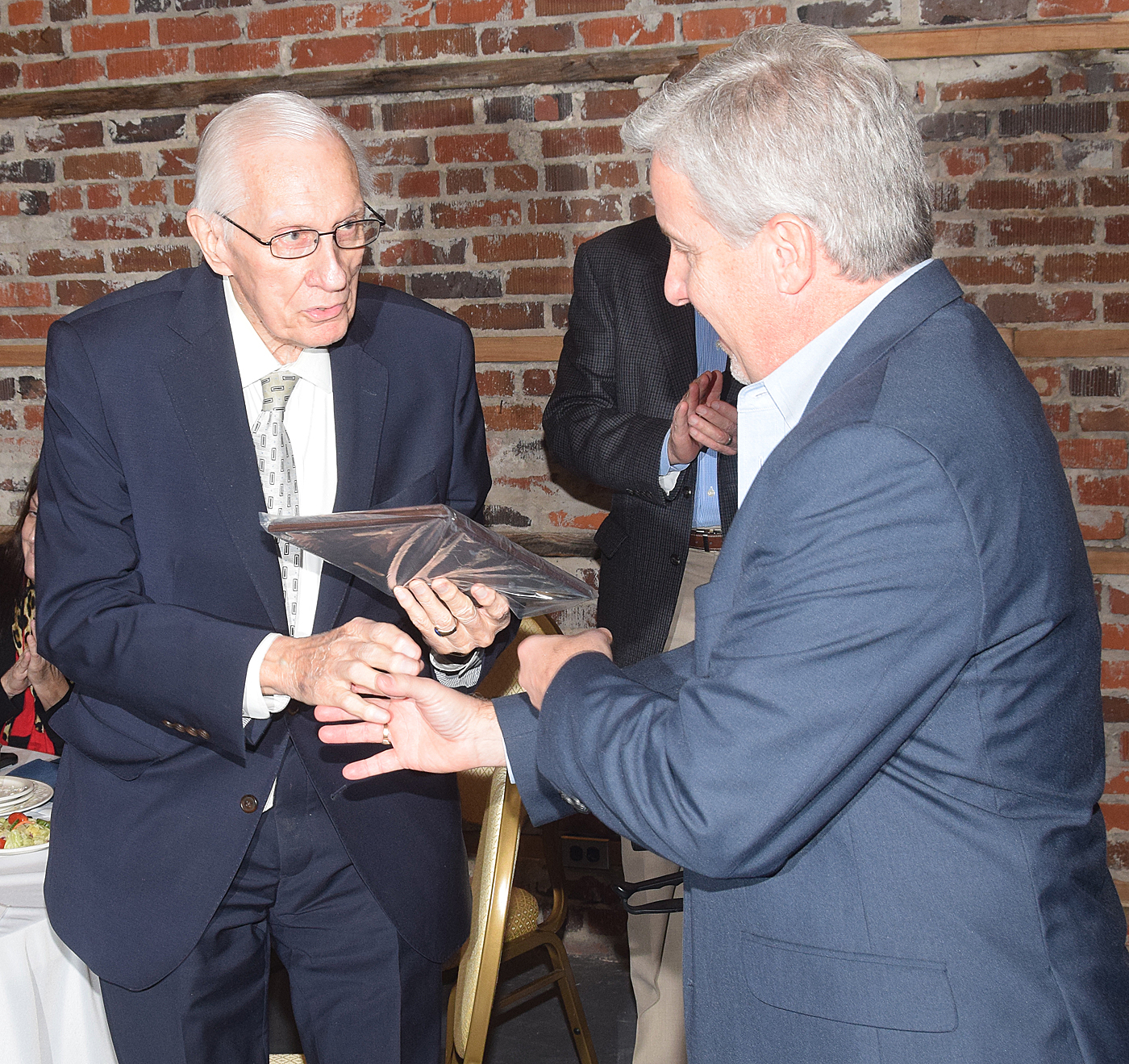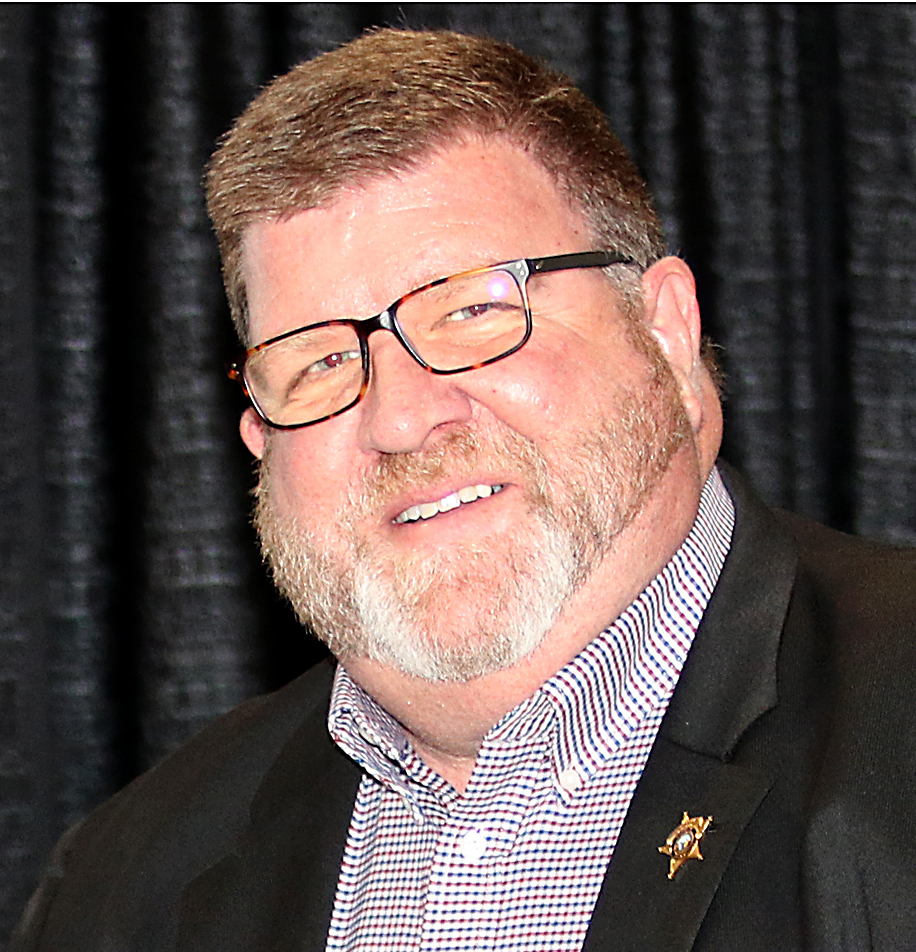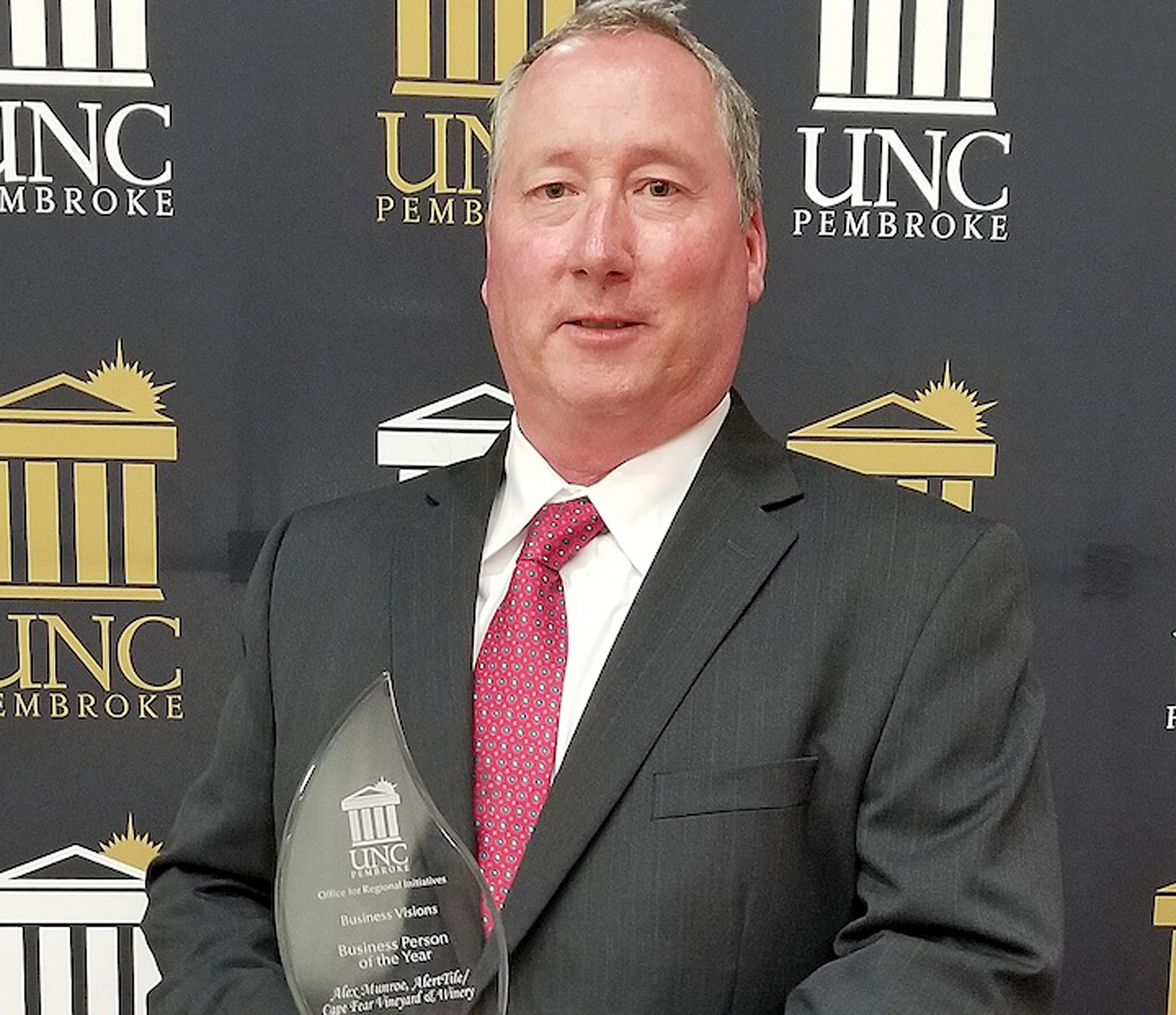George Wooten couldn’t be further from that image — he barely knows who Bob Marley is. He’s a proud N.C. State graduate with a wife, two kids, and is a third-generation farmer.
Neither could Sager West or Al Averitt, who also farm hemp in North Carolina. They all drive American trucks, wear ball caps and have weathered hands.
Hemp farmers in North Carolina look exactly like sweet potato, peanut and cotton farmers. They’re not in it because CBD oil chills you out, they’re in it because it makes sense from a business standpoint.
One hemp plant costs $7, which can easily equal $12,000 per acre to plant. However, the gross profit for one acre usually equals $30,000 to $35,000.
For comparison, gross profit for a good corn crop is $800; for soybeans, it’s $100.
“There’s nothing out there that’s close to hemp,” George Wooten says. “In the past, tobacco was the cash crop. It was close to what hemp is today, but that’s not the case anymore.”
Put the economic numbers aside. Hemp plants are scavengers, meaning they absorb all the metals and pollutants in the soil. That can hurt the quality of the hemp and reduce the profit, but it also clears out the soil of contaminants and makes for a healthier crop next time around. Some environmental groups are researching hemp plants to help clean polluted lands.
Put the environment aside. CBD oil, the product the Wootens are growing hemp for, helped their oldest sister stop having regular, debilitating migraines.
Sarah Bailey Wooten could only find relief in cold, silent, dark rooms. She would crouch in the corner, wincing at every crack the house made. For years she went to traditional doctors, holistic doctors, and chiropractors.
In January 2018, she started taking small doses of CBD oil, around three to four milligrams a day. Within a month, her migraines began losing frequency and intensity.
“She may have a headache every now and then, but she can still function,” George Wooten says. “It’s been a major, major change for her.”
Over the past five years, more and more products are adding CBD. Beauty products tout the anti-inflammatory products of hemp seed oil. The first FDA approved drug using CBD to prevent seizures was approved this year. People who need painkillers regularly are the largest consumers of oil tinctures.
There are oils, lotions, hair products, night creams, milks and capsules for sale in various places across North Carolina. Hemp retail stores are popping up faster than mushrooms in damp soil.
West credits the health benefits of hemp for spurring his interest in the crop.
He cites epilepsy, anxiety and arthritis as the most common reasons people are curious about hemp products.
West says he knew of an elderly man who bought a CBD salve to treat arthritis in his knee who reported to have reduced symptoms a week later.
“His son was like, ‘I think it’s all in his head,’” West says. “But the man said it’s his knee and he knows what it feels like, so he’s convinced it works.”
Target audiences for CBD products have various ailments: back pain, migraines, nausea, trouble sleeping, stress, neuropathy. Various studies produced by researchers at N.C. State University have backed up the claim that hemp works.
The most unlikely people use CBD oil for relief. There’s the 80-year-old woman tired of chronic arthritis, and the 53-year-old man with migraines. And maybe soon, George Wooten’s 9-year-old son who suffers from severe epilepsy.
There’s no reason for children to not use CBD oil, but generally it’s advised to wait until they are 12 years old for consumption.
Despite the farm bill of 2015 allowing hemp to be removed from the federal list of controlled substances, CBD oil in the Wootens’ crop still feels a little sketchy to some.
Hemp is the identical twin to marijuana: they look exactly the same but are genetically different. Someone driving down the highway might do a double take if they stumbled past the Wootens’ four acres. Someone might even pull over and try to harvest a couple plants for themselves under the illusion they’ll get high from smoking it.
To combat that, the Wootens tucked their plants behind a winding dirt road on the farm where they both grew up harvesting tobacco. It wasn’t exactly hidden but they could keep a close eye on who was coming and going down their driveway.
When the first batch of harvest was ready, they transported the best cuts underneath a tarp to their drying location 10 miles away.
“It felt kind of strange,” George Wooten chuckled. “It wasn’t illegal but it felt kind of secretive.”
Despite a promising first batch, the Wootens weren’t able to profit as much as they’d hoped. The hemp was about one day away from finishing drying when Hurricane Florence tore through Columbus County, leaving the area without power for four days and causing intense humidity, which soaked the plants.
The storm cut the Wootens’ harvest by half.
The hurricane devastated Averitt’s crop, too.
It was Averitt’s second year planting hemp. He was one of the first farmers in North Carolina to get a hemp license.
Averitt’s more interested in industrial hemp, which is harvested for its stalk and used for clothing and parachute material.
Hemp fiber is nothing new: the first clothes in ancient Asia were made from hemp. During World War II, the U.S. government paid farmers to grow industrial hemp to help meet demand for uniforms. Hemp was formally outlawed under the Nixon administration under the belief it was the same as marijuana.
Right now, China is the largest hemp fiber exporter, said Jess Cartonia, co-founder of Founder’s Hemp and of the North Carolina Industrial Hemp Association. Canada takes a close second.
“China’s pretty far ahead with the infrastructure for hemp fiber harvesting,” Cartonia says. “We call it child labor, they call it family farming, but they’re able to process the stalk for pretty cheap and export it to places like the U.S.”
Infrastructure and education are the two biggest pitfalls in the United States. Former tobacco farmers have what they need in place for harvesting, but processing hemp has a long way to go. Hemp seeds are much smaller than normal grains or flower seeds, rendering sunflower seed processing equipment unusable. Hemp fiber is more difficult to process and currently can’t be done through machines.
Politicians are the hardest to convince, Cartonia said. The lack of research doesn’t help.
Because hemp is newly released from prohibition, there has been little research on cannabinoids, like CBD and THC, and the discovery of the endocannabinoid system in the human body has years of catching up.
The endocannabinoid system is the reason THC gets you high and CBD relaxes your muscles. It transports chemicals and primes receptors.
Since CBD oil has skyrocketed, researchers are starting to pick up on the momentum and confirm the anecdotes are true: CBD increases appetite, helps calm inflamed nerves, relaxes muscles, improves mood.
Cartonia got into hemp and CBD oil because his brother suffers from Tourette syndrome and it decreases spasms. He had another family member diagnosed with cancer and used CBD capsules to negate chemotherapy side effects.
On all fronts, from farmer to politician, education is key. The Wootens recently opened a holistic wellness store in downtown Whiteville. It’s called Farmacy on Main. They’re installing TVs to run educational videos about hemp and CBD.
North Carolina doesn’t know what hemp can do for the economy, but farmers are willing to bet. The money is tantalizing and times have been tough across the industry. As legislation starts to shake out and regulation comes in, hemp farming is expected to flourish in the former tobacco state.
Their savior might just come as 13 leaves.
Margaret High is a senior Journalism and History major from Whiteville. This story first appeared at mediahub.unc.edu.



























